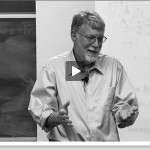Daniel Pink takes on motivation in his new book Drive. I recently had the pleasure of hearing him speak in Pasadena, something I recommend to anyone given the opportunity (he’s an exceptional speaker, see his speaking schedule or this TED talk), where he reinforced a key message from his book about rewarding: when rewards are expected, performance suffers. “If you do X, then I’ll reward you with Y” scenarios undermine intrinsic motivation. In a typical job situation, assuming we’re paid enough of a baseline salary commensurate with our value, it’s the unexpected bonus that’s most effective.
This is precisely what I heard from Michael Eisner and Reed Hastings at a recent Churchill Club dinner in Santa Clara. With two very different takes on management, they had a lively discussion about succeeding in the “nimble” technology or more “traditional” Hollywood industries. Eisner as the elder statesmen of formal management, and Hastings as the up and coming entrepreneur with a new take on leadership—which is detailed, by the way, in the excellent Netflix culture deck. It was a lively conversation (you can also see this take on the culture clash).
What stood out for me on the heels of Daniel Pink’s talk, was when discussing how to compensate executives, the two agreed that “if-then” targeted bonuses do not align actions to long term interests of the company. Hastings recounted an event where Netflix had extra money and considered spending it on marketing to drive more subscriptions, which his executive declined as being too expensive on the margin. What if that executive had had a bonus target tied to subscription levels? Their motivation may have been suspect.
Eisner, in turn, describes his ideal model as paying a good salary and stock package (baseline rewards), but then providing unexpected bonuses when the executive demonstrates nimbleness or does something extraordinary. Exactly what Pink’s research confirms, and a testament to Eisner’s leadership ability and understanding of motivation, as well as the astuteness of Pink’s book.
As is fitting to the point here, sometimes the best parts of study and reflection are connecting the dots when you least expect them. Thanks to Daniel Pink and the Churchill Club for an unexpected reward!
Update 2/26/2010: You can now view the video of this event.
